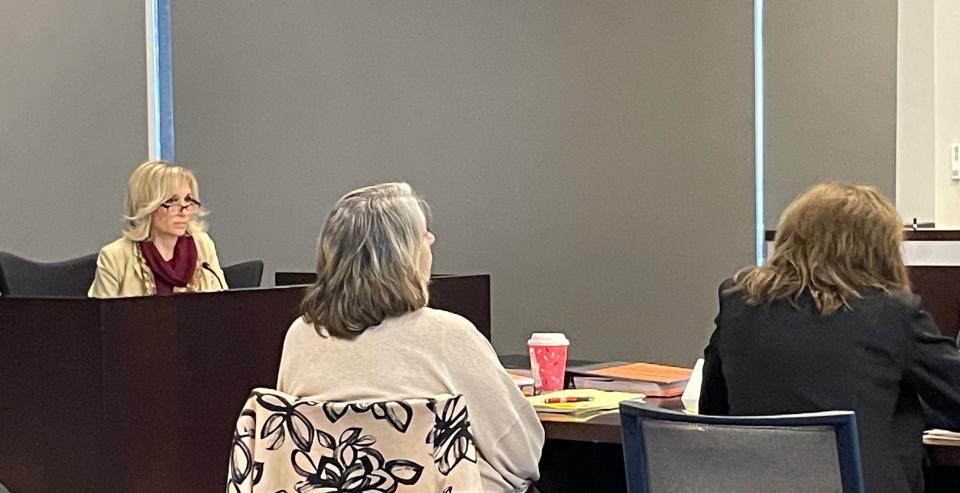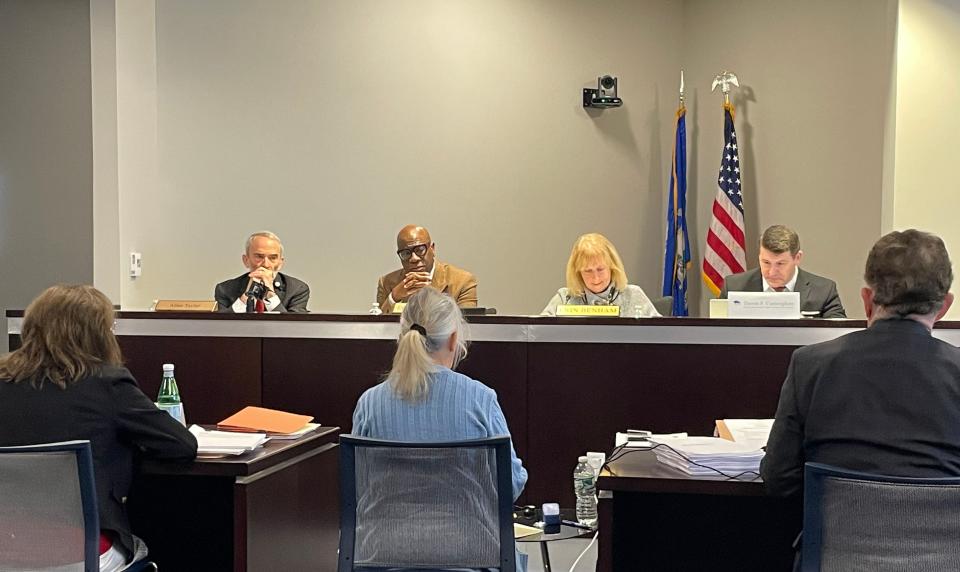Killingly BOE impartial hearing continues - here's what was said
The second day of Killingly’s 10-4b hearing on Thursday included the conclusion of the Killingly Board of Education’s position, and the cross examination by Connecticut State Board of Education Attorney Michael McKeon.
The first session of the hearing was held on Nov. 15. The hearing concerns the Killingly Board’s ability to provide adequate mental health services to its students, per a 10-4b complaint filed with the state by Killingly parents in April 2022, after the board turned down grant funding for mental health services.
At the Nov. 15 session, Killingly Board Attorney Deborah Stevenson asked questions to Killingly Board Vice Chair Kelly Martin. Martin said the board was doing its best to ensure students had access to mental health services. The board also felt other mental healthcare providers, including the current company, Community Health Resources, Inc. (CHR) would have provided better services than Generations Family Health Center, which the turned down grant would’ve funded.

Also at the prior session, Killingly Superintendent Susan Nash-Dietzel also said the district met student mental healthcare needs, and spoke about how the district handles those needs, and programs that in address mental healthcare directly or indirectly, including with absenteeism reduction efforts. She spoke more to those points during the Thursday session
Thursday's session started with the hearing panel going into executive session, regarding evidence and whether the hearing was political in nature. Following a reminder from Connecticut Board of Education member Erik Clemons to the attorneys to not make things personal, the hearing resumed with Stevenson asking Nash-Dietzel questions.
Staffing issues/availability of services
CHR is fully licensed and able to provide mental healthcare. The company has a clinician working one day each week at Killingly High School, and two days each week at Killingly Intermediate School. District counselors identified in the summer those needing help from CHR, and there was more need at the intermediate school. CHR was licensed to operate in the district in June, and started services on September 11. Nash-Dietzel said
CHR’s student slots are now at capacity and the district posted for another clinician for the high school. More staff will be brought as needed, Nash-Dietzel said.

McKeon cross-examines Nash-Dietzel
Stevenson concluded Killingly's case by pointing out that the Board never refused to implement efforts to address student mental and emotional health needs. McKeon responded by pointing out that the district didn’t have a school based health center until this school year.
McKeon then brought up a student survey conducted by Southeastern Regional Action Council (SERAC). Conducted in Dec. 2021, 449 students were surveyed and 28% of responders reported thoughts of self-harm, 18.2% of students hurting themselves on purpose, and 14.7% seriously considered attempting suicide.
McKeon asked Nash-Dietzel about what the Killingly Board of Education did in response to these results. While she first responded with what the district itself was doing, she said the board formed an ad-hoc committee in Sept. 2022, and the board didn’t specifically meet with her about the survey results.
A new student mental health survey will take place in the coming weeks Nash-Dietzel said.
Nash-Dietzel agreed with State Board of Education Vice Chair Erin Benham, saying that a follow-up survey should have been conducted sooner.
Are parents aware of services available?
McKeon asked whether students and parents are fully aware of the services offered by CHR. Nash-Dietzel said the role of CHR is to provide mental health counselling and support to the students who most need it, students who were identified by counselors as needing the service and referred, or parents who marked the mental health box on the family resource questionnaire would be informed about CHR. CHR information was also in the Killingly High School Student Handbook, she said.
The district didn’t send out a flyer about CHR, as CHR advised not to due to capacity concerns, Nash-Dietzel said.
The next hearing is on Dec. 13, when attorney Andrew Feinstein will have an opportunity to cross-examine Nash-Dietzel. Feinstein represents the concerned residents and parents filed the 10-4b complaint.
There may be a fourth hearing scheduled, Benham said.
This article originally appeared on The Bulletin: Killingly BOE impartial hearing continues

